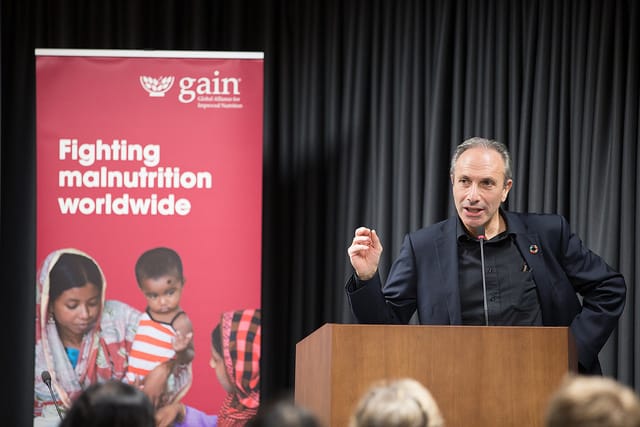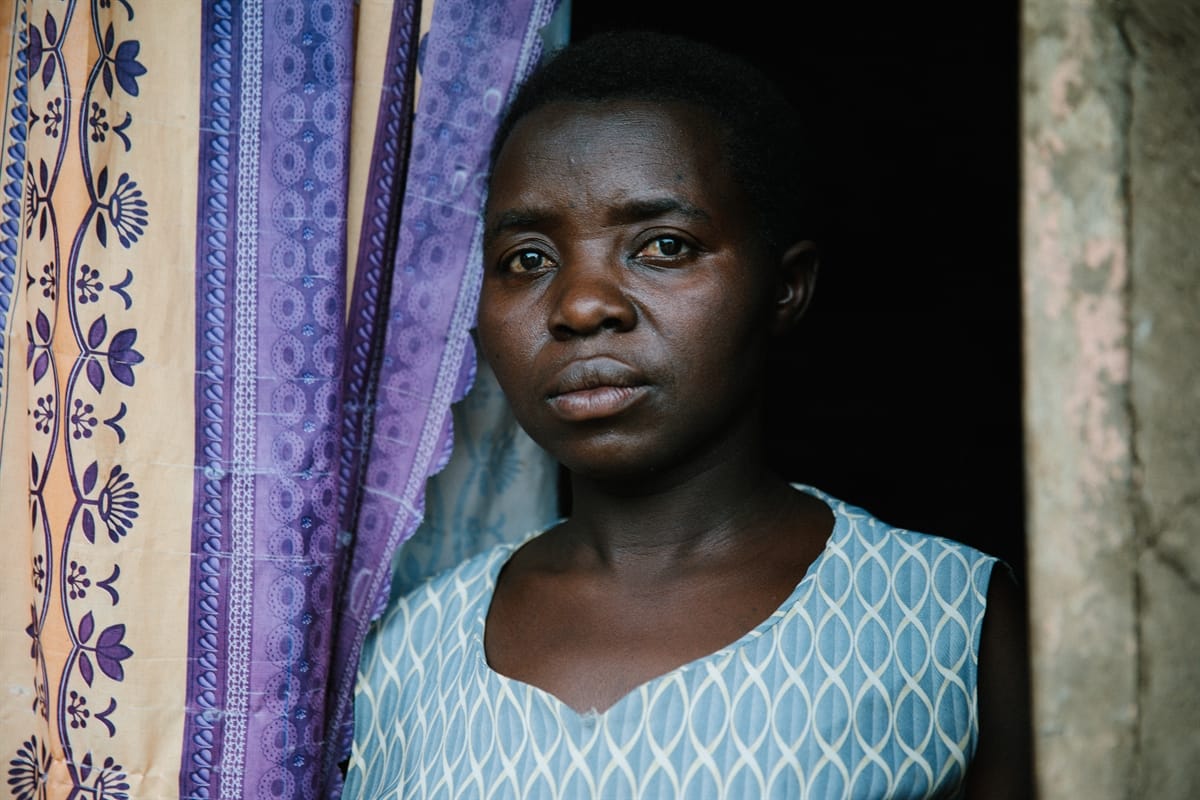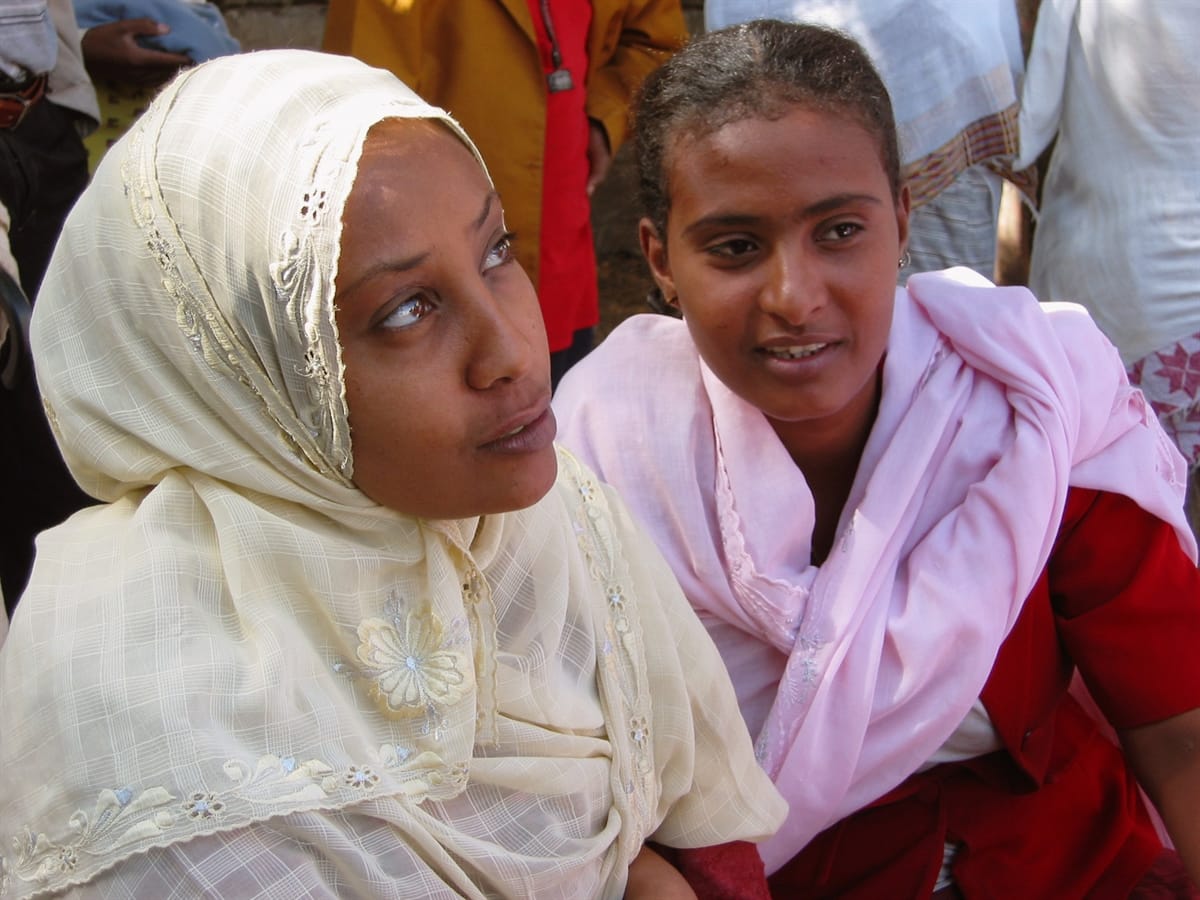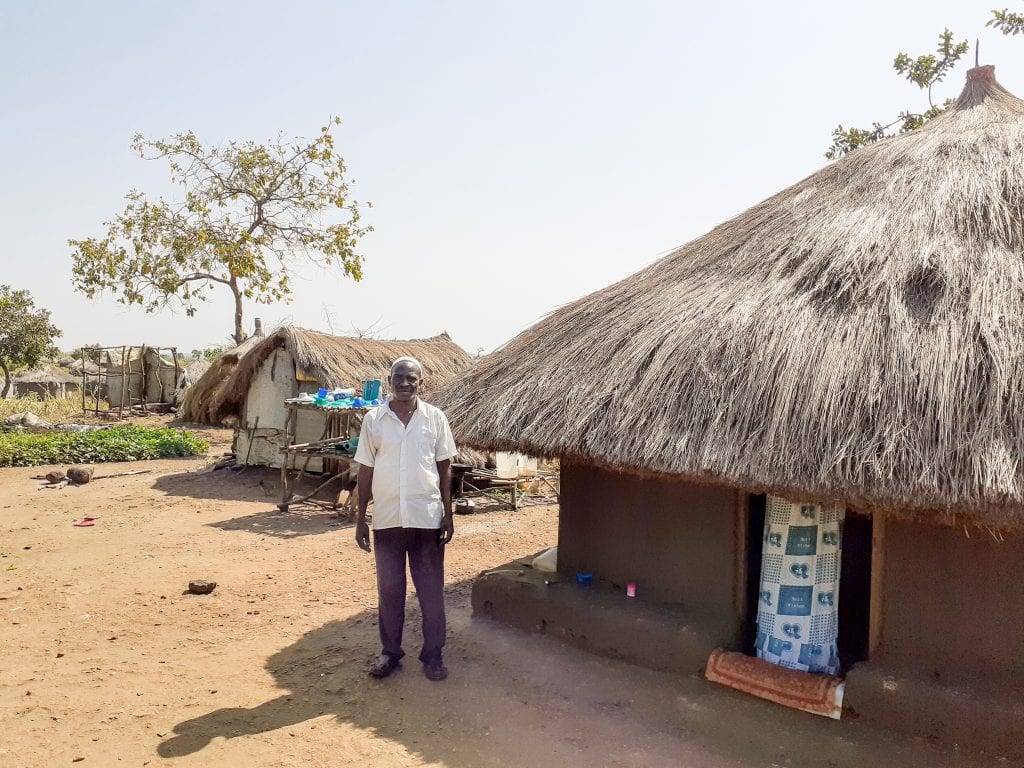GAIN’s Executive Director Dr. Lawrence Haddad and Dr. David Nabarro, of Imperial College London and 4SD are recipients of the 2018 World Food Prize. “The 2018 laureates’ work significantly improved nutrition for mothers and children in the critical first 1000 days of life”, stated the World Food Prize Foundation. “Their relentless leadership and advocacy has inspired efforts by countless others that have collectively reduced the world’s number of stunted children by 10 million between 2012 and 2017.”

GAIN Executive Director Dr. Lawrence Haddad
Both recipients are champions of the critical role of nutrition to human health and development cements the growing awareness of the fundamental importance of healthy diets to the Sustainable Development Goals (SDGs). It represents the first time that the leading global food prize award, founded in 1986 by Nobel Peace Prize winner Dr. Norman Borlaug, has given such prominence to the challenge of not just feeding but nourishing the world.
“Nutrition is a maker and a marker of development; it is fundamental to survival and brain development,” said Haddad. “If you are malnourished as a very young child, your body, your brain, and your immune system are shaped differently; that affects you for the whole of your life, it affects entire nations, and it cascades down generations”, he added.
45% of under-five mortality in Africa and Asia is due to malnutrition and undernutrition is thought to have caused almost 2 million cases of tuberculosis last year. It is estimated that for every $1 a developing country spends on nutrition, it can expect to see $16 in economic returns. Today, nearly sixty countries are giving higher priority to nutrition in national plans within the context of their involvement in the SUN movement.
As noted in the Lancet:
“The 2007–08 food crisis forced the issue onto the international stage. An abrupt spike in the price of grain left a sixth of the world’s population experiencing severe poverty and hunger. Poor households were forced to divert ever-increasing proportions of their income to staple foods, leaving little left over for vegetables and other nutritious foods. At the time, Haddad was director of the UK-based Institute of Development Studies. UK Prime Minister Gordon Brown invited him to a meeting to discuss the crisis. “I explained that for very young children, this was a legacy issue; if they do not get a good diet in the first couple of years of life, they never recover”, said Haddad. “I think that resonated with people.””
“Haddad urged the UK Department for International Development (DFID) to focus its efforts on nutrition. The 2008 Lancet Series on maternal and child undernutrition bolstered his case. “We had the problem, the politicians, and the evidence coming together at the same time; when that happens, you get change”, notes Haddad. From 2010 to 2015, DFID increased its spending on nutrition-related aid from US$342 million to $1 billion.”
“For a very long time, food was seen solely as a source of fuel”, said Nabarro. “But we can now show that undernutrition can have a direct, long-term impact—economists like Lawrence have found ways to put numbers onto this”.
In the decade since the food price crisis of 2017, there has been a significant shift to prioritising good nutrition in reducing hunger. The Lancet observes “Previous discussions equated nutrition with hunger. A food crisis meant an emergency, perhaps a famine; it was a tragedy, but it was temporary. The post-2007 debate, which Haddad and Nabarro have helped to shape, has been marked by the recognition that nutrition is at the centre of development.”
Again from the Lancet:
“There is still a long way to go. Haddad cites research published in The Lancet Global Health that found that the families in several south Asian countries would have to spend more than half of their income to provide five daily portions of fruit and vegetables to each member of the household. “The biggest challenge will be to find a way to reduce the price of nutritious food not by 10% but ten-fold”, he said. Nonetheless, in at least 50 countries around the world, nutrition has moved from being a peripheral issue to a national priority.”
The role of unhealthy diet in driving increased rates of heart disease, type 2 diabetes and cancers is increasingly recognised. Haddad and Nabarro have helped put good nutrition firmly at the heart of development. They said: “We are committed to seeing a greater focus on people’s nutrition within communities, governments, businesses, schools and universities everywhere. The long-term damage caused by inaction is too great”.
You can learn more about GAIN’s leadership in addressing Universal Salt Iodization here, and you can support them here.






